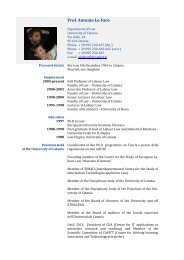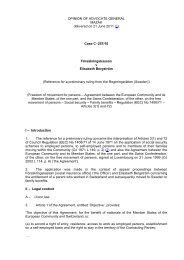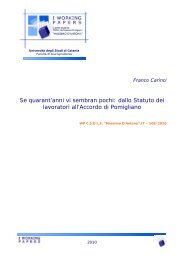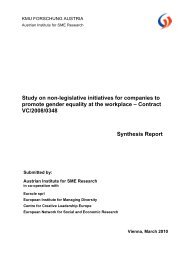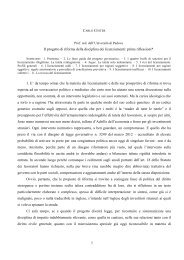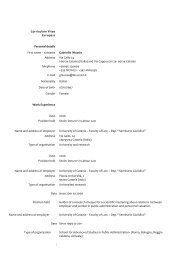Full text - European Trade Union Institute (ETUI)
Full text - European Trade Union Institute (ETUI)
Full text - European Trade Union Institute (ETUI)
You also want an ePaper? Increase the reach of your titles
YUMPU automatically turns print PDFs into web optimized ePapers that Google loves.
Executive summary<br />
This report on domestic transposition measures of Directive 2008/104/CE on<br />
temporary agency work is mostly based on replies to the questionnaire sent to<br />
NETLEX members in September 2011.<br />
The deadline for transposition of the Directive was 5 December 2011. Most<br />
Member States have transposed the Directive, just a few are delayed. Transposition<br />
took place in 20 Member States and is still in the implementation<br />
process in 3 Member States; the <strong>European</strong> Commission has requested them,<br />
in the form of a ‘reasoned opinion’ under EU infringement procedures, to be<br />
notified, until 21 of December 2012, of measures taken to implement the Directive.<br />
In 3 Member States, existing legislation is in compliance with the Directive.<br />
In some EU countries, transposition has been reported as being difficult and<br />
very often, in countries in which temporary agency work is regulated only<br />
through commercial law, which is potentially very harmful for agency workers.<br />
Where the Directive has actually been implemented, the social partners have<br />
mainly been – and are still in three cases – involved in the process.<br />
Starting with a general overview, the report then looks at the state of transposition<br />
in more detail, article by article. Rules regarding the scope of the<br />
Directive did not seem to be a controversial issue. Thus the focus will be on<br />
the following: definition of the main notions, restrictions and prohibitions;<br />
the principle of equal treatment from day one of the assignment; access to<br />
collective rights; implementation of the more favourable clause and the nonregression<br />
clause; and implementation of effective, proportionate and dissuasive<br />
sanctions.<br />
Definition of the main notions<br />
The main concepts used in the Directive are assignment, employer, basic<br />
working conditions, general interest and pay. The definition of the first three<br />
concepts was not really an issue. Indeed, assignments are defined in the same<br />
way in most Member States, temporary work agencies being most of the time<br />
considered as the employer, as the Directive requires. Two exceptions can be<br />
found: in the United Kingdom, where the user is still recognised as the employer,<br />
and in the Czech Republic, where both the user and the agency are<br />
Report 125 7




